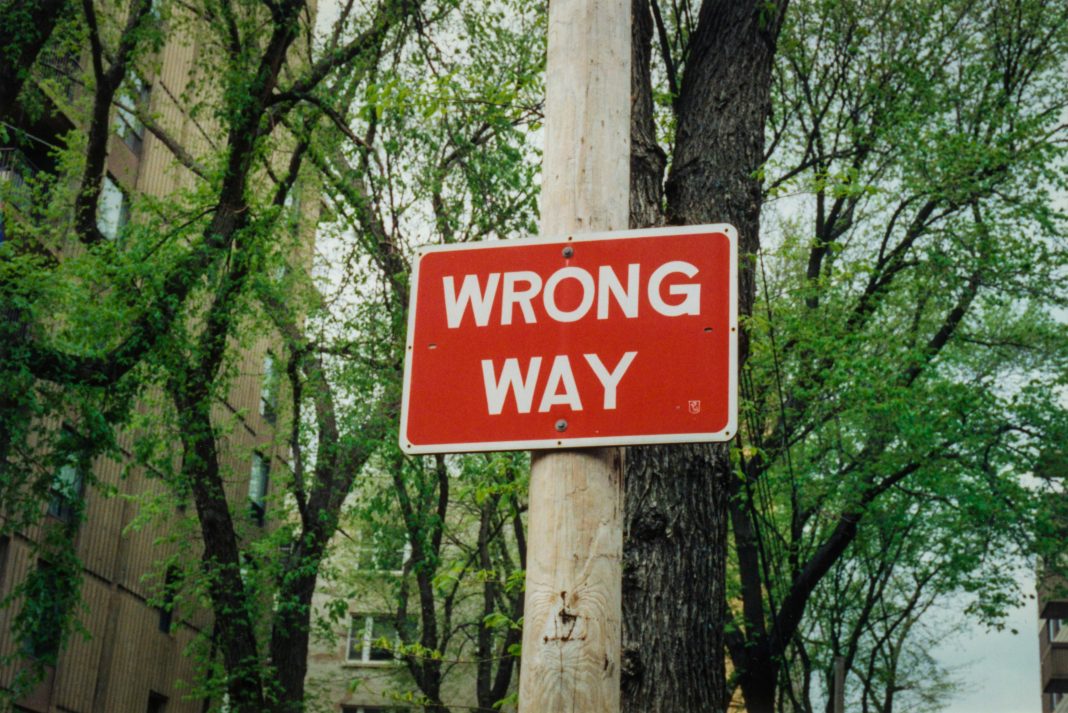CityChangers.org has introduced this series of editorials as a chance for our writing team and guests to air personal opinions on the problems, solutions, and lived experiences in our urban spaces. In this first piece, we suggest that it’s important to hear and respond to contradictory voices and invite diverse community contributions for future editorials. After all, dialogue is an essential tool for improvement.
As a native English speaker in Austria, I’m trying to learn German. And failing. Badly!
To help me on this journey, I use a popular online language teaching platform.
It’s very good at one thing in particular: telling me when I’m wrong!
The negative red text and critical ‘bong’ sound that comes up with any incorrect answer is all too familiar. And frequent! But this is rarely accompanied by a real lesson as to how to get it right.
Isn’t this more conditioning than learning? It’s certainly confusing. Like refusing to take a dog for a walk and scalding it for doing its business indoors. If we don’t teach the dog what’s right, and give it opportunities to do that, it simply won’t learn. All we’re left with is a mess and it stinks! (Also an accurate description of my German.)
Controversy in Sustainability
This got me thinking about how we approach urban sustainability. We expect people to do the right thing – but are we helping them make those choices?
In the run up to the Urban Future conference in Stuttgart this summer, we posted a teaser for a session on mobility. We’ll explore how cities built for cars are inherently a male construct that benefits – surprise, surprise – mainly men. Predictably, this attracted some backlash. (Tellingly, all male.)
The defensive, toxic nature of these comments shows what we’re up against.
It also posed a conundrum. How do we respond?
While we as an organisation prefer to remain apolitical, is it okay – even essential – at times not to remain neutral?
Yes. It’s important to speak out against injustice – be it social, political, or environmental. Hence, we did push back in our replies. (See for yourself on LinkedIn and Instagram.)
We’re fortunate to have a platform. Like anyone in that position, we must use our voice in defence of those who do not.
Justice Swings Both Ways
However, we cannot speak for everyone. Humans naturally view the world through a prism of unconscious bias and a certain amount of self-interest. We have to encourage others to use their own voice and offer them a safe space to do so. This includes making room for perspectives of opposition. Debate is healthy.
What use is it just being like that language learning app and only telling people they’re wrong? If we don’t also teach them to see our cities differently, what changes?
Anyone can be misled by misinformation.
Providing a benchmark against which to evaluate the truth can separate out narrow-minded opinion and support critical thinking – and that gives us a launchpad for innovation.
When I ask CityChangers how they measure the success of sustainability projects, they almost always refer to data – what it shows or how hard it is to gather.
In a world where opinion is mistaken for news, we have become semi-obsessed with using empirical data as the only go-to measurement, a seemingly incontrovertible form of evidence.
Life experiences also count for a lot, remember. This is why we encourage public participation. Listening to how others move through the world allows us to understand more than our own perspective, and constantly question and reform our own views.
Maybe with new information, and given a way to learn, critics can become allies.
Editing Our Editorials
CityChangers articles are mostly based on fact – real-life stories from experts and advocates. From this, we extract guidance for other cities to replicate successes and avoid repeating the same mistakes.
In contrast, what you are reading now is an editorial. This series was developed with the intention for our team of writers to share personal opinions and raise questions about issues we don’t feel are being addressed sufficiently.
These are only our opinions. Others are welcome too.
We want to start conversations that may one day lead to new ideas for sustainability in cities.
Without diverse input, we lose the potential to learn and improve; it lacks that CityChangers panache.
Like our cities, we can do better.
So, consider this an open invitation for thoughtful, challenging, respectful debate.
At the end of all our editorials and articles, we offer a space for comments – please use it.
Want more room to explore your thougths? Then, why not submit an editorial of your own? Whether in response – and contradiction – to one of our own, or with another topic that matters to you. Reach out to us with your ideas.
The good news is that there will be no nagging scarlet alert popping up if we think you’re wrong. Chances are, you’ll prove to us that we are.
The success of CityChangers, just like urban sustainability, relies on its strength as a community effort.
So, let’s learn from each other.
That’s my opinion. What’s yours?
Have Your Say
Is it important to hear people out when they have a different opinion on how a city should look or function? What if it’s all based on speculation and not on evidence? How should we deal with conflicting data, even when both sides are corroborated? Should empirical feedback have more value than anecdotal or observational input? Should the experiences of underrepresented groups carry more weight to balance the inequities in our cities? Can we really learn just by knowing we’re doing wrong, or are explicit lessons necessary for sustainable change? Do you lead a project that focuses on exactly this topic that you’d like to tell us about?
If you have an opinion on this or any other issue raised in this article, have your say in the comments below. Remember to always be respectful of other CityChangers and their experiences.


